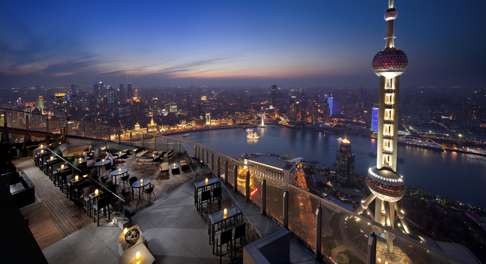
How China’s luxury consumers moved on from bling to doing their own thing, opening space for niche brands to prosper
Chloe Reuter, founder and CEO of Shanghai-based Reuter Communications, talks about the changing China market, social media influencers and how Hong Kong compares
What have been the major changes in media, communications and PR in mainland China over the past five years?
The pace and degree of change has been incredible. The most striking has been the adoption of social media in brand communications. The platforms and technologies evolve every day. Platforms which were considered key five years ago, or even two years ago, are now no longer relevant. Consumers have a lot of information across many platforms. Communications and PR agencies have adapted their services to stay ahead. There is no such thing as “a pure PR agency” today; agencies need to be properly integrated to serve clients and stay relevant.
Is the end nigh for China’s overseas luxury personal shoppers? How has the Chinese attitude towards luxury evolved? Over the past 10-15 years we’ve seen a shift away from “bling” towards the development of a sophisticated luxury consumer. It’s a transition from status-seeking and validation to trend setting and pride, from indulgence and experience-seeking to the stage we are at now: discernment, connoisseurship and knowledge.

As tastes develop, niche brands can let consumers portray their individuality. This is reflected throughout luxury, in hospitality (and brands such as Aman), fashion and accessories (as in Delvaux). A brand name alone usually isn’t enough to lure a loyal customer, so marketing has changed. Over the last couple of years, brands have increasingly emphasised storytelling and experiences, which is more about long-term relationship building than locking in a sale.
You have just opened a Hong Kong office. Why was this important and how is the market different here? Hong Kong is an important milestone in our growth strategy. Not only is it a key regional base for many of our clients, it also remains an entry point for many premium and luxury brands coming to China and Asia.
When founding the agency in Shanghai in 2010, opening in Hong Kong was certainly in my mind too. We have grown to a team of over 30 in Shanghai representing brands like Swarovski, Aman, Harrods, The Ritz-Carlton, Toms and Sotheby’s. It’s the right time to have a team on the ground in Hong Kong.
I’ve loved Hong Kong since going to high school there. In general the appreciation of luxury has been a much bigger part of Hong Kong consumer culture over the last few decades than in [China], so naturally the market is more developed. This can make it harder for brands to impress a local audience, but it also means they are highly knowledgeable and informed and their paths to purchase are more customary. In [China], it might be the first time a consumer has experienced the brand, so storytelling, informing them and being available on multiple platforms is perhaps more of a priority.
You have a very busy life in Shanghai. Where and how do you relax? With a business and a family, there is a lot to juggle. Living in a hectic city like Shanghai, keeping logistics as simple as possible makes a big difference. This means school and work are walking distance from home, which saves a lot of time and diminishes stress. It also means more quality time with my children.
To manage the workload in a growing business, the team is crucial and I’m very grateful to colleagues. A year ago Nick Cakebread joined as managing partner based in Shanghai, which has helped balance my workload in a more effective and fun way.
You have worked as a journalist for Reuters TV, Bloomberg TV and Channel 4. What are the challenges of dealing with media censorship in China? I’ve always been a news junkie and loved working as a journalist. To be honest we don’t come up against a lot of censorship issues in our daily work. Being sensitive to local culture is important but it’s mostly just common sense – steering clear of religion, and other hot topics, and being able to advise our clients with local insights.
What is it like working with Chinese key opinion leaders and social media influencers? Are there any pitfalls? That market has basically become a business in its own right, and any brand should tread carefully. First ask yourself a few questions: what is the objective of engaging a key opinion leader? Do you want to boost sales, raise brand awareness or even change positioning? What would success look like?
The top opinion leaders boast tens of millions of fans and followers, but don’t be fooled by numbers! I’m a huge fan of using micro-influencers and it has changed our approach to digital marketing. These niche, grassroots micro-influencers might have fewer followers, but they are often more loyal and responsive.
Research the right micro-influencers for your brand – you can actually gain a lot of value by hitting a more targeted niche audience.


